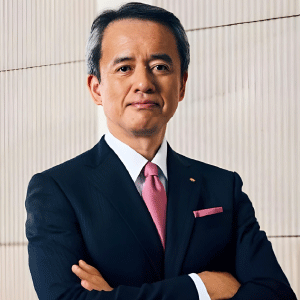The size of the global renewable energy market was estimated to be USD 1.51 trillion as of 2024 and is expected to grow to USD 4.86 trillion by 2033 at a CAGR of 14.9% during 2025-2033. The global transformation toward low-carbon energy solutions and stringent environmental regulations in developed economies is witnessing tremendous growth of the renewable energy industry. In addition, the global renewable energy sector is dominated by the imperative to cut greenhouse gas emissions, diversify energy sources, and provide long-term energy security. Multilateral climate agreements and national net-zero pledges have pushed governments to adopt ambitious renewable energy targets and put in place supportive policies, such as feed-in tariffs, tax credits, and green bonds. At the same time, reducing costs of solar photovoltaic, wind power, and battery storage systems have rendered renewable energy increasingly cost-effective. The growing need for green power in residential, commercial, and industrial segments facilitates wide scale use of renewables.
Attaining a low-carbon society which helps prevent climate change is at the forefront of the UN's Sustainable Development Goals, specifically SDG 13: Climate Action. Yet, the journey to a sustainable future is full of intricate problems across many sectors. Climate-related disasters in the form of floods and heatwaves are raising adaptation expenditures, particularly in vulnerable nations. Synchronizing mitigation and adaptation with fiscal limitations is a big concern. Without strong global collaboration and equity-oriented policies, the establishment of a low-carbon society is an imperative yet challenging objective to attain.
Reducing the Environmental Impact
One such company in pursuit of a low-carbon society that mitigates climate change as a sustainable development goal, which is expanding its renewable energy generation business globally, including offshore and onshore wind power, solar power, biomass, and hydropower is Marubeni. Marubeni is also working on reducing the environmental impact through the reduction of its coal-fired power generation projects. The company aims to consider the adoption of new technologies aimed at reducing CO2 emissions.
Industry Top-Class IPP Track Record & EPC Coordination Capabilities
“With strong regional marketing in Japan and overseas, top-class IPP experience, robust EPC coordination, and an excellent asset management system, the company delivers end-to-end excellence in renewable energy,” says Masayuki Omoto, President & CEO of Marubeni. Marubeni provides a secure and reliable supply of power in the power generation business by playing a leading role throughout all stages of the projects it is involved in.
From development to construction, and ultimately to operation & maintenance, Marubeni takes advantage of its sector know-how, developed by rich experience and knowledge of EPC and project finance, fully backed by a global network of strongholds for project development and asset management.
Marubeni has developed a best IPP/IWPP asset portfolio in a variety of the world's regions. The majority of the projects are backed by long-term power purchase agreements with a stable profit base. In Japan and abroad, the total net generation capacity of the company is 11,550MW (as of March 2023 end) comparable to major international IPP players.
Comprehensive Energy Solutions
While society turns to carbon neutrality, we will generate value added by integrating the diverse activities of the Marubeni Group, as outlined above, and offering overall energy solutions for effective energy utilization and decarbonization for diversified customer needs.
Marubeni plans to grow its community-based power service (local production for local consumption of renewable energy, urban decarbonization, etc.), supply/demand adjustment through battery storage and ancillary services for power grids where renewable energy is injected.
Technological advancements such as bifacial solar modules, floating wind farms, and hybrid renewable systems are opening up new levels of efficiency and grid integration. The increasing emphasis on decentralized power systems, rural electrification schemes, and international renewable power trade increases access to clean energy among developing markets. Corporate sustainability targets and power purchase contracts also strongly drive renewable capacity growth. Challenges remain, however, such as the variable nature of renewable resources, insufficient power storage capacity, and few transmission networks in some geographies, which prevent effortless adoption. Moreover, policy volatility, land acquisition hurdles, and financing risks for large-scale renewable projects remain key barriers to sustained market growth.



